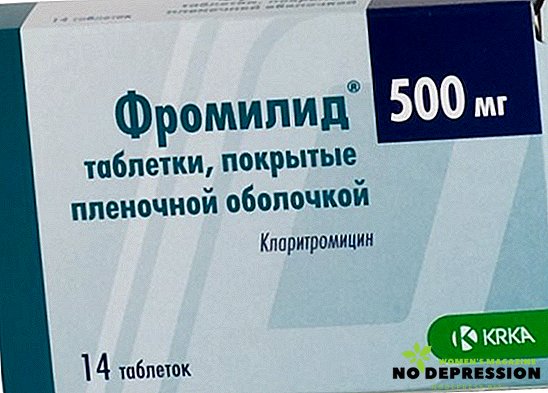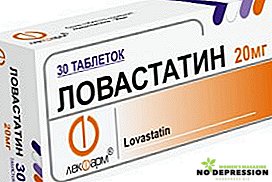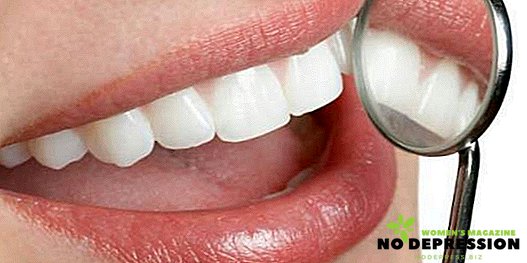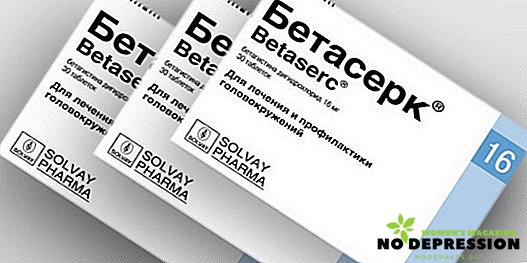Fromilid is an antibacterial agent of semi-synthetic origin. It is widely used in the treatment of the infectious process, which is provoked by pathogenic microorganisms that are sensitive to this antibiotic.

Types and forms of release
Fromilid is an antimicrobial semi-synthetic agent from the group of macrolides - new-generation antibiotics, which have relatively low toxicity. It is produced in tablets and in the form of a powder, from which a suspension is prepared.
Depending on the amount of the active substance, which contains one tablet, produce these types of drugs:
- Fromilid 250 mg. These are yellowish oval convex capsules covered with a transparent film. Available in 7 and 14 units in blisters, stored in cartons.
- Fromilid 500 mg. The same in color and appearance of the tablet, but the active ingredient in one capsule is 2 times larger.
- Fromilid Uno 500 mg. This is the same drug, only having a prolonged (longer) effect. This is a convex yellow capsule covered with a thin film. On one of its sides is visible marking in the form of the Latin letter "U". Available in quantities of 5, 7 and 14 units, which are stored in special blisters that are packed in cardboard boxes.
Powder for the preparation of suspensions has the form of small granules of a milky or slightly yellowish hue. It has a clear banana flavor.
Available in a glass bottle of 1, 5 g. The powder is diluted with ordinary drinking water at the rate of 125 mg per 5 ml of the prepared suspension, which should have a uniform structure, a yellowish color and a banana smell.
Tablets are prescribed for adults and children weighing more than 33 kg. Suspension is most often used to treat young children.
Components and pharmacology
The composition of all forms of release of Fromilid contains the active substance clarithromycin, which provides the pharmacological effects of the drug. It provides mainly bacteriostatic effect on some groups of pathogenic microorganisms. Among the bacteria sensitive to this substance, the following are distinguished:
- gram-positive aerobes (some staphylococci, streptococci, listeria);
- gram negative aerobes;
- mycobacteria (except the causative agent of tuberculosis);
- intracellular microorganisms (legionella, chlamydia, ureaplasma, toxoplasma, mycoplasma).
Also treats the drug diseases caused by helicobacter (for example, ulcerative processes in the organs of the gastrointestinal tract).
The drug is absorbed in the organs of the gastrointestinal tract. Clarithromycin has the ability to penetrate tissues and body fluids, which allows it to cope with an infection that is located in the most hard-to-reach places (lungs, saliva, middle ear, skin, plasma).
Metabolism occurs in the liver, some of the drug in an unchanged form comes out with the urine after 5 to 6 hours.
In addition to the active ingredient, tablets and suspension have excipients that should be considered before prescribing the drug, because they can provoke an allergic reaction in a patient. For example, powder for solution contains flavoring agents, colorants, citric acid, sucrose, and lactose.
Indications for admission, some contraindications
The indications for the use of the drug are infectious lesions, which provoke groups of bacteria that are sensitive to the active ingredient. Among them are:
- bacterial infections of the respiratory tract (sinusitis, bronchitis, pneumonia);
- ear inflammation (otitis);
- skin and subcutaneous inflammation (folliculitis, erysipelas, infection of wounds);
- complex treatment of diseases caused by the Helicobacter bacterium;
- infectious lesion provoked by various types of mycobacteria;
- prevention of inflammation due to the defeat of the body by the human immunodeficiency virus (HIV, AIDS).
Fromilid also has a number of contraindications that should be considered before prescribing the drug. First of all, it is not recommended to take it:
- Small children. Suspension is contraindicated for up to 6 months, and tablets should not be drunk up to 12 years.
- Pregnant women (especially in the first trimester). In the period from 14 weeks before the birth of the child, the drug is prescribed with caution.

- Nursing mothers.
- Allergy sufferers. May be individual intolerance to the active substance or auxiliary components of macrolide antibiotics. Taking the suspension can also cause an allergic reaction to sucrose, glucose, fructose, which is contained in it.
- People with severe liver damage (cirrhosis, liver failure, hepatitis).
- Porphyria disease (genetic blood disease).
Also, do not take an antibiotic at the same time as some medications. This may entail unpleasant consequences for the patient.
Dosing and Administration
Consider the instructions for use for children and adults. So, the drug Fromilid taken by mouth. The dosage is prescribed by the attending physician, taking into account the following indicators:
- age of the patient;
- the presence of special conditions (pregnancy, breastfeeding, allergies to certain components, some diseases);
- the extent of the lesion and the severity of the infectious process.
Depending on these criteria, the release form and dosage of the drug are prescribed.
 Suspension is mainly used to treat the smallest patients (from six months to 12 years). In this case, the dosage is selected individually, taking into account the weight of the child.
Suspension is mainly used to treat the smallest patients (from six months to 12 years). In this case, the dosage is selected individually, taking into account the weight of the child.
He is supposed to give no more than 15 mg of medicine per 1 kg of body weight per day. This dose should be divided into 2 parts and drink in the morning and evening with a liquid.
To prepare the medicine, shake the bottle, pour 40-50 ml of drinking water into it and shake well until a homogeneous suspension is obtained. You can use it with a syringe, which is available in the kit.
Fromilid in tablets drink inside, without chewing, washing down with usual water. They treat only adults and children whose weight is above 30 kg. The usual daily dosage is 250 mg of the drug 2 times. But in severe conditions it is increased (up to a maximum of 2000 mg per day).
The duration of therapy is determined by the attending physician. But the course of taking antibiotics should not exceed 2 weeks.
Side effects
Like all antibacterial drugs, Fromilid has side effects. Especially they appear with prolonged or improper medication. The most common ones are:
- digestive problems (nausea, vomiting, diarrhea, abdominal pain);
- headaches;
- convulsions;

- mental disorders (drowsiness, insomnia, nightmares, unreasonable fear, disorientation);
- distortion of taste and smell, possible hearing loss (temporary);
- discoloration of the tongue, sometimes tooth enamel;
- stomatitis, oral candidiasis;
- shortness of breath, an irregular heartbeat;
- bleeding and haemorrhages of an unusual nature;
- allergic manifestations (itching of the skin, its redness, rash, swelling of the face, sometimes anaphylactic shock).
In some severe cases, the use of this medication can trigger the emergence of dangerous diseases. For example, jaundice, hepatitis, hematopoietic diseases, cardiac abnormalities (tachycardia), muscular abnormalities (myalgia), kidney and liver problems.
Special instructions for admission
Fromilid is a synthetic agent, so its use should be monitored by a doctor who takes into account many aspects that may affect the health of the patient. Before appointment should consider:
- Age. Tablets can not be small children.
- State of pregnancy and breastfeeding period. The components of the drug are able to penetrate the placental barrier, so they can cause harm to the fetus. They also stand out along with breast milk. If you drink the medicine, then you need to stop feeding.
- Diseases of the liver of a chronic or acute nature.
- Interaction with medicines. With some drugs, it is better not to combine Fromilid. These are such drugs:

- Terfenadine, Cisapride, Pimozide, Astemizol (this can lead to life-threatening arrhythmias);
- Statins (Lovastatin, Simvastatin) - there are myopathies;
- ergot alkaloids (Ergotamine and analogues) provoke ischemia of the extremities, disorders of the nervous system;
- Rifampicin, Phenobarbital, Etravin, Ritonavir, St. John's Wort reduce the effectiveness of clarithromycin.
If symptoms of overdose appear (deterioration of health, nausea, vomiting, abdominal pain, severe mental disorders), as well as side effects, you should immediately stop taking the drug and seek help from a doctor.
May require gastric lavage, treatment of symptoms. In severe cases, apply hemodialysis (extrarenal blood clearance).
Prices and structural analogues
Prices depend on the form of release of the drug and the location of the pharmacy where they sell the medicine. Get ready to pay for:
- Fromilid 250 mg - from 350 to 400 rubles per pack of 14 pieces;
- Fromilid 500 mg - 550 - 600 rubles (14 units);
- Fromilid Uno 500 mg - 250 rubles (for 5 tablets), 270 - 330 rubles for 7 tablets, 600 and more - for 14 capsules of the drug.
Has an antibiotic and analogues on the active substance.
These are Arvitsin, Binoklar, Clarithromycin, Claritrosyn, Klacid, Crixan, EcoSetrin and many others.
Their prices depend on the country of origin and other criteria.
When it is necessary to take antibiotics, you can learn from this video.















